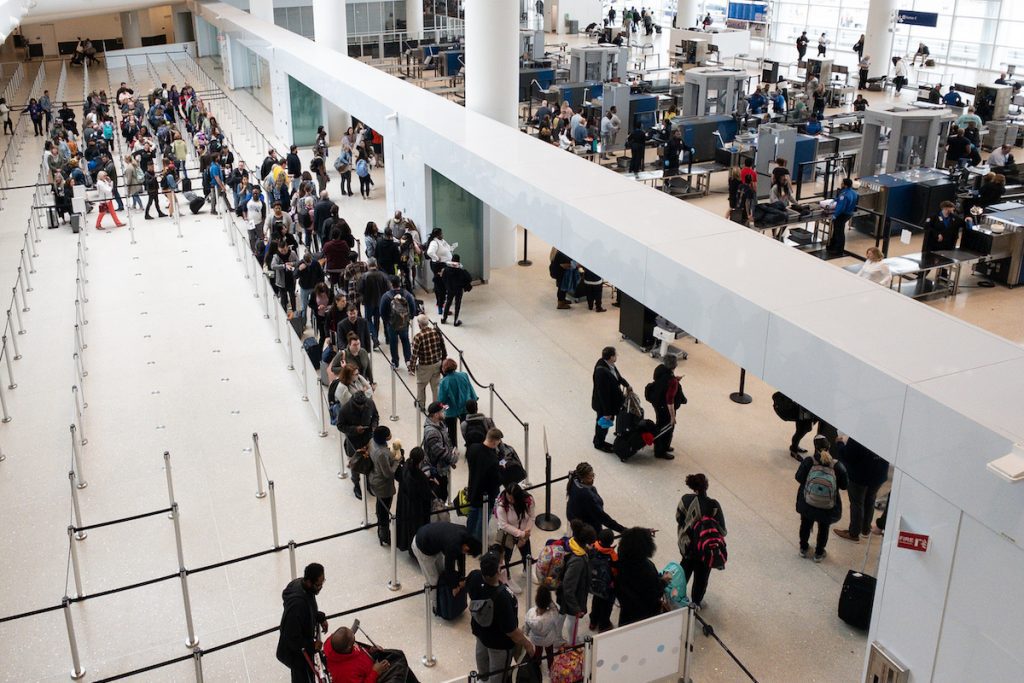
U.S. Senators questioned airline executives Wednesday over the use of junk fees for seating, baggage, early boarding and other perks.
Senator Richard Blumenthal, the chair of the Senate subcommittee on investigations, urged Treasury Secretary Janet Yellen and Transportation Secretary Pete Buttigieg to investigate airlines for potentially evading taxes on airfares and consumer rights regulations.
“[Customers] feel like they are piggybanks just to be shaken down by these skyrocketing fees that seem to have no connection to any costs that the airlines incur,” Blumenthal said.
Last week, the Senate subcommittee released a report that was highly critical of airlines adding fees to seat selection and checked-in baggage, ancillary offerings that were once included in the airfare. The report found that American, Delta, United, Spirit and Frontier collected $12.4 billion from seating fees between 2018 and 2023.
The hearing featured testimony from Steve Johnson, American’s chief strategy officer; Peter Carter, Delta’s chief external affairs officer; Andrew Nocella, United’s chief commercial officer; Matt Klein, Spirit’s chief commercial officer; and Robert Schroeter, Frontier’s chief commercial officer.
A Contentious Hearing
At times, the hearing became heated as both Republican and Democratic senators expressed frustration that the executives wouldn’t reveal what determines the fees.
“We’re all captives on your airplanes at a certain point,” said Senator Maggie Hassan, a Democrat from New Hampshire. “And you just say, ‘you want to pick a seat, we’re just going to charge you some random amount.’ And what we’re trying to get at is why and how much does it actually cost you? And why can’t some of your airlines tell people ahead of time how much this is going to cost?”
Republican Senator Josh Hawley bluntly told the executives: “Flying on your airlines is horrible.”
“Nobody enjoys flying in airlines,” he said. “It’s a disaster. You charge people fees that they know nothing about.”
Klein said an airlines’ job is to generate revenue to be profitable and that the fees help Spirit cover the costs to transport a passenger’s bag.
“Actually, we have costs, and we have to make sure we’re above the cost line so we can run a profitable entity,” Klein said.
“I get it, money’s the answer,” Hawley responded.
Airline Executives on the Defense
Executives defended their business models.
Klein said Spirit’s unbundling airfares made travel more accessible.
“A large percentage of our guests want something simpler, basic travel and a personal item at the lowest possible price,” Klein said. “Our model ensures that customers only pay for the services they want, not what others want.”
He argued that ancillary fees should not be called “junk fees,” a term that became popularized by President Joe Biden’s 2023 State of the Union address.
“Optional services by definition are not so called junk fees, as optional services are not required to travel,” Klein said. “Indeed, unlike many other industries, airlines already must advertise the complete price, including taxes and fees of any fare or optional service. What travelers see advertised is what they pay.”
Nocella said he believed United’s basic economy fares gave travelers more choice.
“A basic economy fare allows that student to take her trip at the lowest possible fare without having to pay more to subsidize services that she does not want,” Nocella said. “Fees for services like check baggage or seating should never be a surprise, and no matter what air travel options a customer selects, United provides them with transparent, readily accessible pricing information and product descriptions.”
Executives at the hearing emphasized that they don’t use consumer data to determine how much to charge for ancillaries, which was something that the report alleged carriers use to adjust their prices.
“Ancillary fee practices that erode the trust and loyalty of our customers are not in our best interest,” Carter from Delta said.
A Flashpoint for the Biden Administration
Junk fees have long been an issue for the Biden administration, which has pushed airlines to disclose more of those fees.
In April, the Department of Transportation released a rule that would have required airlines to disclose all the fees for seat selection, baggage, changes and cancellations upfront.
However, major airlines soon sued the DOT over the rule and the Fifth Circuit Court of Appeals ultimately ruled in the airlines’ favor, placing a temporary stay on junk fee disclosures. The airlines argued that the rule was a regulatory overreach that would create more confusion for customers.
At the hearing, Blumenthal called out airlines for trying to block the rule and asked Delta’s chief external affairs officer if the carrier would be willing to drop that lawsuit.
“Senator, I’m not prepared to make that commitment here today,” Carter said.
Airlines Sector Stock Index Performance Year-to-Date
What am I looking at? The performance of airline sector stocks within the ST200. The index includes companies publicly traded across global markets including network carriers, low-cost carriers, and other related companies.
The Skift Travel 200 (ST200) combines the financial performance of nearly 200 travel companies worth more than a trillion dollars into a single number. See more airlines sector financial performance.
Read the full methodology behind the Skift Travel 200.

